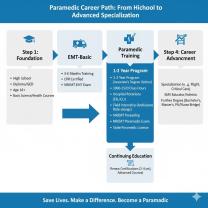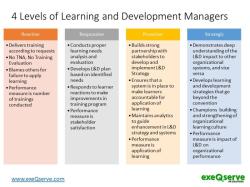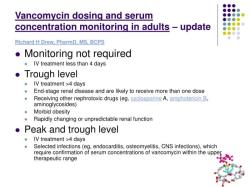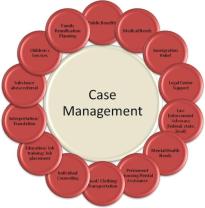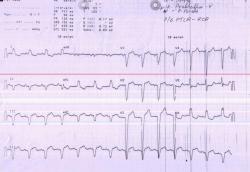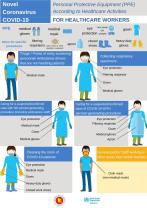Is there a fast track to becoming a doctor?
Becoming a doctor typically involves a long and rigorous educational and training process, and there are no truly "fast tracks" to becoming a doctor in the traditional sense. However, there are accelerated pathways and options that can help you become a doctor more quickly compared to the standard route. Here are some accelerated pathways to becoming a doctor:
Combined Bachelor's and Medical Degree (BS/MD or BA/MD): Some universities offer combined programs that allow students to complete both their undergraduate degree and medical degree in a shorter time frame. These programs usually take 6 or 7 years instead of the usual 8 years (4 years for the bachelor's and 4 years for medical school).
Post-Baccalaureate Pre-Medical Programs: If you already have a bachelor's degree but need to complete the necessary pre-medical coursework, you can enroll in a post-baccalaureate pre-medical program. These programs are often designed to be completed in 1-2 years and prepare you for medical school admission.
Early Assurance or Guaranteed Admission Programs: Some medical schools offer early assurance or guaranteed admission programs to undergraduates who meet specific criteria. These programs can save time by eliminating the traditional medical school application process.
International Medical Schools: Some countries have medical schools with shorter duration programs. For example, some European medical schools offer six-year programs that lead to an MD degree.
Military or Service Commitment Programs: The military, such as the Health Professions Scholarship Program (HPSP), offers financial assistance in exchange for a service commitment as a military physician.
Osteopathic Medicine (DO): Osteopathic medical schools often have slightly different admissions requirements and may offer more flexible pathways, which can be attractive to some students seeking a quicker route to becoming a doctor.
It's important to note that while these accelerated pathways can shorten the time it takes to become a doctor, they can also be highly competitive and may have specific eligibility criteria and requirements. Additionally, the medical profession requires a significant commitment of time, effort, and dedication, regardless of the pathway chosen.
Before pursuing any accelerated pathway, it's crucial to research and consider your options carefully, consult with academic advisors, and ensure that your chosen pathway aligns with your career goals and aspirations. Additionally, you should be aware of the licensing requirements and accreditation standards in your country or region.
Fast-Tracking Your Medical Career: Is There a Shortcut to Becoming a Doctor?
Becoming a doctor is a long and challenging process, but there are a few ways to fast-track your medical career. One option is to enroll in an accelerated medical program. These programs typically combine undergraduate and medical school education into a single, seven-year program. This can save you one year of tuition and other expenses.
Another option for fast-tracking your medical career is to apply to a medical school that offers early admission programs. These programs allow you to apply to medical school during your junior year of college, and if you are accepted, you can begin medical school immediately after graduating from college. This can save you two years of time.
Finally, you can also fast-track your medical career by choosing a shorter residency program. Some medical specialties, such as family medicine and pediatrics, require only three years of residency. This is in contrast to other specialties, such as neurosurgery, which require six or seven years of residency.
Exploring Expedited Routes to a Medical Degree
If you are interested in fast-tracking your medical career, there are a few things you can do to explore expedited routes to a medical degree. First, talk to your pre-health advisor at your college or university. They can help you identify accelerated medical programs and early admission programs that may be a good fit for you.
Second, research medical schools that offer shorter residency programs. You can find this information on the websites of individual medical schools or on the website of the Association of American Medical Colleges (AAMC).
Finally, talk to other doctors about their experiences with fast-tracking their medical careers. They can provide you with valuable insights and advice.
Assessing the Viability of a Fast Track to Becoming a Physician
Whether or not a fast track to becoming a doctor is right for you depends on your individual circumstances and goals. If you are highly motivated and academically successful, then an accelerated medical program or early admission program may be a good option for you. However, it is important to keep in mind that these programs are very competitive, and they require a significant amount of time and dedication.
If you are not interested in pursuing an accelerated medical program or early admission program, then you may want to consider choosing a medical specialty with a shorter residency program. This can be a good way to fast-track your medical career without having to sacrifice your academic training.
Ultimately, the decision of whether or not to fast-track your medical career is a personal one. You should carefully weigh the pros and cons of each option before making a decision.
Here are some things to consider when assessing the viability of a fast track to becoming a physician:
- Your motivation and academic success: Accelerated medical programs and early admission programs are very competitive, and they require a significant amount of time and dedication. If you are not highly motivated and academically successful, then these programs may not be a good fit for you.
- Your financial situation: Accelerated medical programs and early admission programs can be expensive. You should carefully consider your financial situation before enrolling in one of these programs.
- Your career goals: If you are interested in pursuing a medical specialty with a longer residency program, then a fast track to becoming a doctor may not be the best option for you.
If you are considering a fast track to becoming a physician, I encourage you to talk to your pre-health advisor, research medical schools and residency programs, and talk to other doctors about their experiences. This will help you make the best decision for your individual circumstances and goals.


